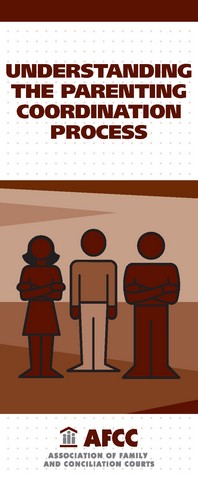
Parenting Coordination: WHY?
When children are exposed to ongoing conflict between their parents, they are at significant risk for social, academic and mental health problems, and may experience more difficulty with their own intimate relationships in the long term. Parenting coordination can help to reduce parents’ conflict and may shield children from exposure to their parents’ disagreements. The parenting coordinator can help parents resolve child-related issues in a timely manner without court involvement and can protect and sustain safe, healthy and meaningful parent-child relationships. Most importantly, the parenting coordinator can help parents focus on the best interests of their children, rather than on their anger toward one another.
Parenting Coordination: WHEN?
Parenting coordination is appropriate for high conflict cases dealing with child-related issues, such as when
- there is a high rate of litigation, especially concerning the implementation of a custody order or parenting plan;
- mediation has not been successful or has been deemed inappropriate;
- parents need assistance developing, modifying or implementing their parenting plan;
- parents have difficulty communicating information about their child’s welfare;
- parenting are unable to agree on substantive issues concerning their child;
- there are complex child-related or family issues that require intensive case managing; and
- parents can afford to pay for the parenting coordinator’s services or the services can be provided at no expense.
Parenting coordination is not for cases in which it has been determined that the process may compromise the safety of parents of the minor children.
Parenting Coordination: WHAT?
Parenting coordination is an alternative dispute resolution process combining assessment, education, case management, conflict resolution and, sometimes, decision-making functions. A Parenting coordinator (PC) is typically appointed by a court order or private consent agreement to help parents implement, modify and comply with the parenting plan. PCs assist parents by providing: (1) education about co-parenting and parental communication; (2) the psychological and developmental needs of the children; (3) strategies to manage conflict and reduce the negative effects on children; and (4) effective post-separation parenting. To further assist parents and children, PCs facilitate referrals to community providers when necessary and collaborate with other professionals who may already be involved with the family.
Some jurisdictions have statutes or court rules that regulate parenting coordination. Therefore, certain aspects of the parenting coordination role may vary in different jurisdictions. For instance, in some courts the parenting coordination process is confidential; in others, the PC may report to the court. In some areas, a PC can also help parents create their parenting plan and can make recommendations and/or decisions for the parents as specified in the court order or agreement. Any decisions made by the PC are subject to the review of the court, which is an important safeguard to the process. PCs should be aware of, and explain to parents, any laws and local rules of practice.
Parenting Coordination: HOW?
The process of entering parenting coordination varies amongst jurisdictions. Sometimes, the judge will sign a court order mandating parenting coordination; in other instances, the consent of the parties is necessary. When the judge appoints the PC, the length of time that the PC will serve is often limited, such as to a term of one or two years.
Some courts maintain a roster of PCs, who meet specific qualifications, to provide parenting coordination. In other courts the PC simply needs to be approved by the court or agreed upon by the parents. In some jurisdictions PCs may be available at low or no cost.
You may obtain more information about having a PC appointed to your case from your local court, your attorney, or other family law professional in your area.
Parenting Coordination: WHO?
Since PCs are appointed in high conflict cases, their qualifications are particularly important. The Associated of Family and Conciliation Courts’ Guidelines for Parenting Coordination recommend that PCs have specialized psychological knowledge, relevant legal knowledge and significant experience working with high-conflict divorce and parent separation cases. PCs should also have experience with mediation and specific training in parenting coordination. Depending on the jurisdiction, the PC may be required to be license as a mental health professional, psychologist or attorney, or certified as a family mediator. The PC may be required to have a specific number of years of experience working with high conflict families. To avoid a potential conflict of interest, it is best to choose a PC who has not worked with the family in the past and will not work with the family in the future in any role other than parenting coordinator, such as a custody evaluator, mediator, therapist, financial advisor, attorney, or guardian ad litem.
The Association of Family and Conciliation Courts (AFCC) is a professional membership association that offers support and guidance to parenting coordinators. More information, including the AFCC Guidelines for Parenting Coordination, is available on the AFCC website at www.afccnet.org.
This pamphlet draws from materials developed by Family Court Services, 11th Judicial Circuit, Miami-Dade County, Florida.
Developed by Linda Fieldstone, Christine Coates, Robin Deutsch, Matthew Sullivan and Robin Belcher-Timme (2011).
© 2003 Association of Family and Conciliation Courts.
All rights reserved.